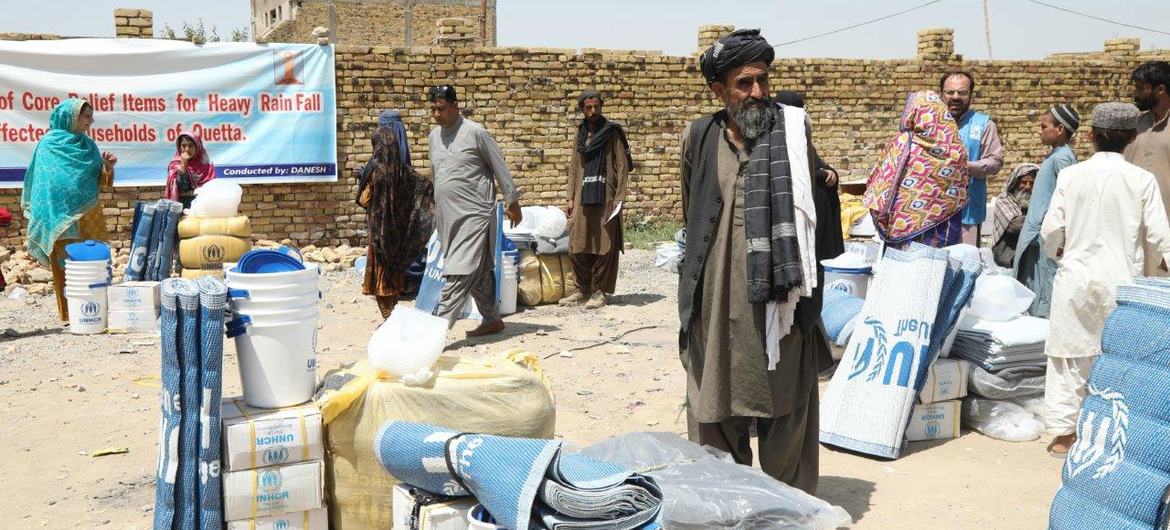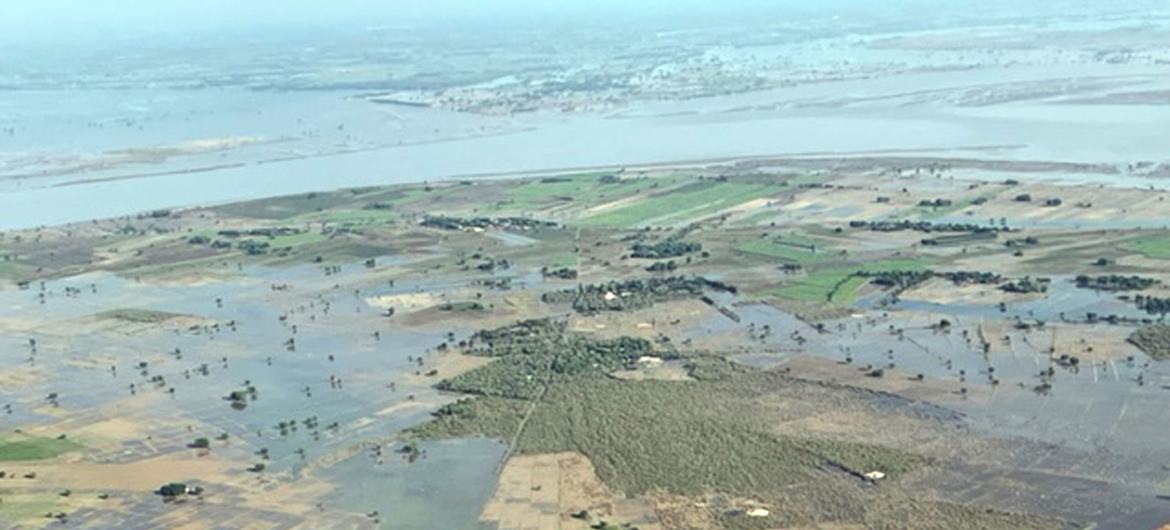“Many parts of the country, especially in the southern province of Sindh, remain underwater, as well as … parts of eastern Balochistan,” said UNHCR spokesperson Babar Baloch, adding that officials have warned that it could take “up to six months for floodwaters to recede” in the hardest-hit areas.The UN agency has coordinated logistics as part of a plan to transport more than 1.2 million relief items to local authorities in the most flood-affected areas. To date, it has delivered more than one million life-saving items to authorities for distribution.
Echoing the deep concern among first-responders, the UN refugee agency, UNHCR, noted that 7.6 million people in Pakistan have been displaced by the floods, with nearly 600,000 living in relief sites.
To help them, UNHCR and partners have provided emergency cash assistance to hundreds of vulnerable refugee families, supplementing the Government’s monsoon response.
Roads and bridges swept away
Floods inundate Balochistan province, Pakistan.
“Roads and bridges have been washed away; I’ve just come from the field and the water is not going anywhere,” Ms. Birukila continued, speaking via Zoom from Quetta.
In a fresh appeal for international support, the UNICEF worker described desperate scenes.
Please, give me clothes
Southern Sindh province is still in crisis, with many areas still under water.
“We don’t have enough food, we don’t have shelter, and still even the kind of healthcare that is required is not available,” said Gerida Birukila, UN Children’s Fund (UNICEF) Pakistan Chief of Field Office in Balochistan, another of the worst-hit provinces.
Massive aid operation
 To date, more than 1,500 people have been killed, including 552 children.
To date, more than 1,500 people have been killed, including 552 children.
Afghans in danger zone
Flood victims collect emergency supplies in Balochistan Province, south-western Pakistan.
There are also concerns for Pakistan’s 1.3 million registered Afghan refugees; an estimated 800,000 live in more than 45 “calamity hit” districts out of 80 affected locations, UNHCR said, noting that four of the worst-hit districts in Balochistan, Khyber Pakhtunkhwa and Sindh provinces host the highest number of refugees.
“People are being displaced. They are looking out and they just tell you, ‘That used to be my house, this used to be the school,’ but what you can see is just water and water,” said UNICEF’s Ms. Birukila.
